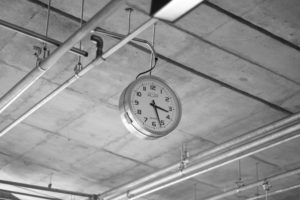
It is the Circadian Clock genes which are within nearly all cells of the body, the brain and organs have the ability to keep close track of time. This timekeeping ability is so critical, because it manages the minute changes in physiology ranging from hormone release to repair activities which much take place in an orchestrated fashion during certain times of day or night. Using a mechanism called a feedback loop, those genes located with the nucleus of the cell produce a protein which is encoded by the Circadian Rhythm genes, they have fancy acronym names like CLOCK NPAS2 BMAL1 which produce proteins that activate another set of opposing proteins with acronyms like PER 1/2/3 and CRY 1/2 the activation of the production of these proteins suppress the activation of the first set of proteins mentioned (CLOCK NPAS and BMAL) and this all happens in a remarkable 24 hour cycle. It would be akin to building and taking apart a lego structure in exactly the same amount of minutes each time to count the passage of hours during the day, and doing this repeatedly. There is certainly a purpose our bodies go through the trouble of counting down minutes and that has to do with timing, and how important timing is for your metabolism





Leave a Reply